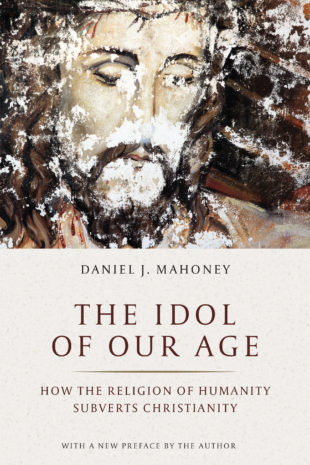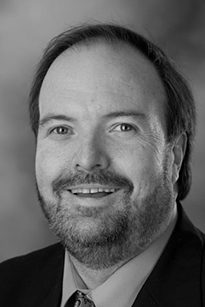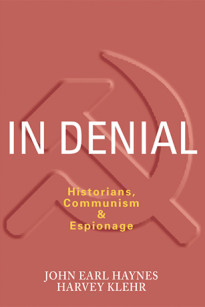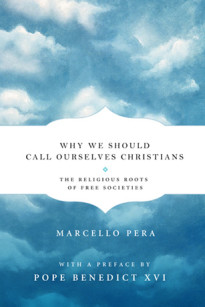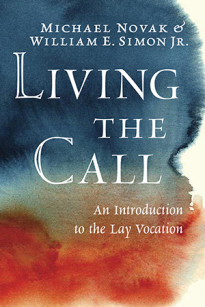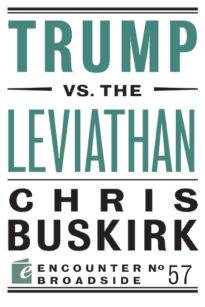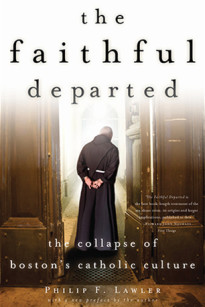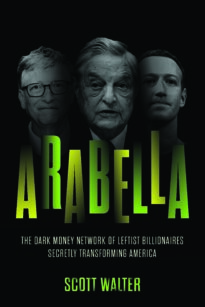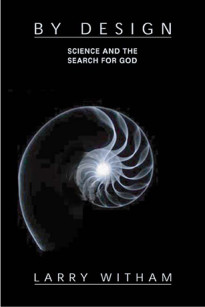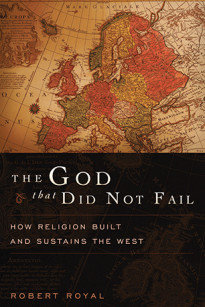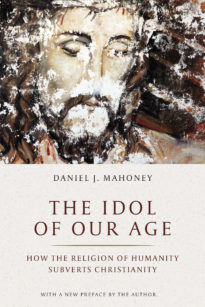The great danger of contemporary humanitarianism is of habituating peoples to despise political reflection, even politics itself and its concrete conditions of existence, as if the affirmation of humanity was sufficient in itself.
Each epoch knows some temptations. The revolutionary temptation persisted for a long time in the West. Today, we experience the humanitarian temptation, which appears more sympathetic. But, in a certain manner, these two temptations are in continuity, and belong to the very same project: to abolish the political existence of men which separates human beings into nations and classes.
—Pierre Manent (2000)
The distinguished French Catholic political thinker Pierre Manent perfectly describes the humanitarian temptation that afflicts the Western world today. Even as we insist that human beings live in closed cultures, utterly sufficient unto themselves, our elites blindly announce the unification of a “humanity” which is escaping national loyalties and national identification. Unbeknownst to ourselves, we are adherents of nineteenth-century French philosopher and sociologist Auguste Comte’s “religion of humanity.” Comte was the “prophet” of the movement of humankind from a theological and military order to a scientific and industrial one, and of the dawn of a great “Occidental Republic” that would culminate in the comprehensive unity of the human race. He was the theorist of “democratic pantheism” par excellence since, in the future that he imagined and announced, there would be no more separation between either God and man or peoples and nations. Manent, following his teacher Raymond Aron, calls Comte “the sociologist of human and social unity.” In this understanding, Humanity becomes its own paramount theme. The movement toward a unified humanity is “irresistible,” but it must be “institutionalized and organized” through “the organization and institution of the religion of humanity.” As Manent shows, Comte makes explicit the implicit faith of the late modern world.
Like Comte, Manent suggests, our intellectual elites “can only see human unity.” The philosophical idea of humanity, which first came to light in the eighteenth century in French and German enlightenment thought, is now accompanied by what can only be described as “religious enthusiasm.” What Montesquieu, Voltaire, and Kant announced as a humanizing “Idea” to soften and regulate the mores of modern peoples, we treat as a “self-evident truth.” All who question it are met with “sacred indignation.” Nations were seemingly discredited by the two world wars of the twentieth century, and, as a result, Europe, Comte’s avant-garde of humanity, sees unity where it only incompletely exists. Human beings still live in political communities, plural nations, and regimes, which are the only homes we have for common action, for true political life. These communities “mediate” and “concretize” our sense of the universal but are met by our contemporaries with what Manent calls “vigilant hostility.” We increasingly despise mediation and the political expression of our humanity. In truth, human beings experience common humanity only in the meeting of diverse human and spiritual affirmations and propositions that arise from the concrete human communities in which we live. We see and feel these communities every day. But our intellectuals and opinion-makers are prisoners of the “invisible” unity of the human race that only true believers can see. The humanitarian temptation takes the form of an intolerant and indignant “religion of humanity,” which excoriates all those who do “not see humanity as an immediate reality,” as a self-evident truth. In multiple ways, Auguste Comte remains the secret ruler of souls.
From Positivism to the Religion of Humanity
Auguste Comte was a theoretician of positivism before becoming the founder of the “religion of humanity.” His atheism is more thoroughgoing than what usually goes by the name. He faulted most soi-disant atheists for still trying to answer metaphysical questions. “The true positive spirit” was aggressively anti-theological and anti-metaphysical. It regarded questions about the “why” of existence as utterly futile. True science was concerned with “the study of the invariable laws of phenomena,” not with causes, whether “proximate or primary.” It had no interest in explaining the formation of the universe or the origin of animal and human life. These were “metaphysical” concerns that would be left behind by the positivist spirit. The eminent twentieth-century political philosopher Eric Voegelin has noted the incipient totalitarianism lurking behind Comte’s rendering of the great human questions as futile and useless. In the spirit of ideology, Comte simply announces that these questions can no longer be asked in the great Occidental Republic of which he is the prophet and forerunner. He imposes on reason a crippling self-limitation that prevents it from engaging in properly philosophical reflection. In this way, too, Comte remains a ruler of souls and is one of the sources of the flaccid positivism that dismisses out of hand those questions about truth and meaning that are at the core of our dignity as thinking animals.
In his chapter on the “Religion of Humanity” at the end of part I of his System of Positive Polity, Comte announces the superiority of the morality of positive science to the morality of revealed religion, since it has substituted “the love of Humanity for the love of God.” Adverse to all forms of theology and metaphysics, and excluding “all personal considerations,” the new morality puts “Social Feeling” above self-love. “Humanity,” understood as the very best in human beings, becomes the Grand-Être to be worshipped by limited and fallible men. Comte has forgotten that what is highest in man finds its ultimate source in what is higher than man. Without deference to the Beings, Forms, and Limits that inform and elevate the human will, man risks becoming a monster to himself, enslaved by his own self-deification. Comte admirably recognized that people should defer to what is best, most meritorious, in human beings. But as Aurel Kolnai has well noted, nobility also entails “the subordination of everything human to what is above man.” Men are not gods, and that affirmation is the beginning of all wisdom, secular and religious. Voegelin strikingly captures what is so disturbing in Comte’s innovation: his is an “inter-mundane eschatology…a divination of word-immanent entities” that is the enemy of all transcendent reality. Nothing humane or truly spiritual can arise from such an “apocalypse of man.” It is built on the most demonic of foundations—what Voegelin so suggestively calls in Science, Politics, and Gnosticism “the murder of God.”
